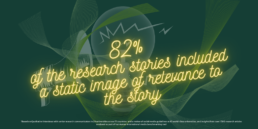Excellent universities are defined by excellent research, and one of the main skills of those who direct reputation is to make this research accessible, and as widely read as possible. For our World 100 research project 2015/16, The R-Word, we explored best practice in communicating research to public audiences, so that it is effective, impactful and reflective of the excellence of the institution.
Strategies for impactful research communications was the focus of this project, which is comprised of three individual reports. Qualitative interviews, either in person or via an online survey, with senior research communicators in 29 universities across 13 countries inform the main report. In addition, senior-level staff within research offices of the same universities were consulted for comparative views and opinions. The main report is complemented by a review of social media guidelines for staff at 63 universities ranked in the world’s top 100 (THE, QS, ARWU and US News & World Report) in Australia, Canada, Germany, Netherlands, Sweden, Switzerland, UK and USA to monitor/manage social media usage. The third report includes insights from over 1,500 research articles analysed as part of our Aurora international media benchmarking tool and a series of case studies exploring individual university approaches.
The qualitative research found that the ‘newsworthiness’ of research stories stems from research that is demonstrating impact, that changes in how we consume media have had a profound effect on how research news is communicated and how resources should be managed to engage the large range of key audiences receiving research communications.
The approach to social media guidelines varies from university to university, however some very clear best practice key themes emerged, including how to ensure brand consistency and upskill non-specialist staff to maximise effectiveness.
The review of research stories that were published by major international news broadcasters shows that there are some marked discrepancies between identified best practice and reality.
We set out to explore the following:
- How is newsworthy research identified?
- Do communications directors and research directors agree on which research at the university should be promoted? Is there a shared view of key audiences and desired impact? How do their approaches differ? And how do they measure success?
- What is the relationship dynamic between communications teams and directors of research?
- What makes a great research news story?
- Is a focused approach on a few global strengths better than a diverse and inclusive approach to research promotion?
- How are world-class universities communicating research online in innovative ways?
- How have national policies on identifying research impact changed universities’ approaches to communicating research?
- Do universities look to policy and practice in other countries to improve the impact of their research communications?
A research story is thought to be newsworthy if it can demonstrate ‘impact’
The final versions of the report from the research, The R-Word: Communicating Research at World-Class Universities, were published in December 2016. Members of the W100 Network can access the three full reports from the news and resources page.
Become a Member
The World 100 Reputation Network is a group of the best universities in the world, delivering research that enhances reputation and offering leaders the chance to develop their own careers on a global stage. Members benefit from events and study tours, training, monthly media monitoring, and unique reputation research to provide institutional advantage.





